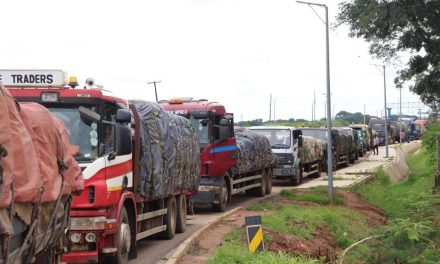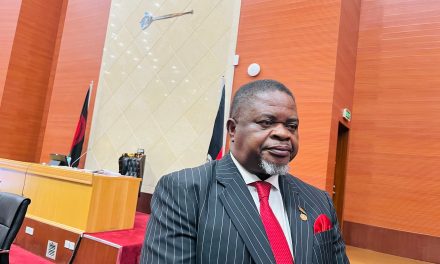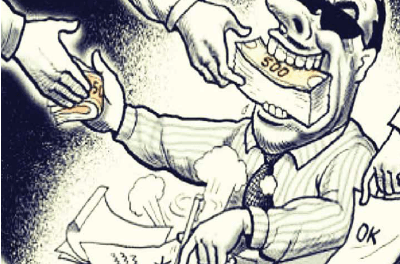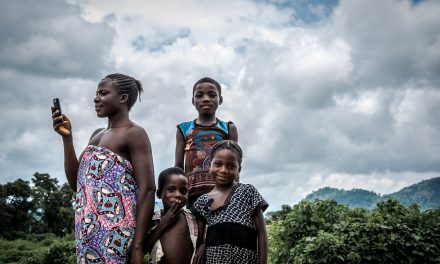
Living an Ailing Economy, Any Bail Out?

In recent years, Malawi nation seems to be rocked with a number of challenges among them, the ailing economy and increased poverty. One would not be surprised to hear even all and sundry the most average Malawian from the remotest area talking about the economy and government’s efforts to resuscitate it. Events indicate that the country is reeling from one of the worst economic situations characterised by high inflation rate, skyrocketing interest rates which resulted into a biting cost of living and buying power among others.
“The disposable income for most people has been fast dwindling owing to an increase in inflation rate and rising cost of living which certainly bundle more people into the ultra- poor poverty band in which people earn less than $0.30 {K75 per day},” the recent statistics from national statistical office{NSO}.
The country’s current rate of inflation rate has been rated as the second largest in the southern and eastern African region by the Common Market for Eastern and Southern Africa {COMESA}. Its headline inflation for March stands at 18.2 percent as reported by the national statistical office, while the ambitious government is targeted to reduce the figure to 15 percent by the end of the year 2015.
The Increased poverty levels has led to the declining of social fabric and increased insecurity which has in turn, contributed to a backdrop of failing private domestic and foreign direct investments, which therefore, contributed to rising unemployment levels.
Official statistics from the ministry of labour and manpower development indicates that 1.9 million youths in Malawi are jobless. Unemployment rate in Malawi remains high and experts say 80% of graduates in Malawi fail to secure jobs, a situation that resulted into most Malawians trekking to neighbouring countries like South Africa in search for greener pastures where their lives have been at the knife-edge, with for instance, xenophobic attacks on foreigners.
As a donor-driven country for over 50 years now, Malawi is still reeling from the suspension of budget aid by its major donors who unanimously suspended their support in November 2013 following revelations of abuse of taxpayers’ money at capital Hill dubbed Cash gate. The common Approach to Budgetary support {cabs}, withheld resources worth at 150 million {over K65 Billion}. Following the cash gate scandal, the contribution of donor support to the budget substantially declined from about 40 percent of the total resource envelope to less than 20 percent in the 2014/15 fiscal year.
Currently, most donors have not rushed to release funds as quickly to bail out economy. Only IMF and AFDB-have so far released some budgeting support, according to sources. The rest are still clinging to their money, claiming they want proof that the current economic reforms will be sustained before releasing its money. Other donors engage in a wait-and -see game to the outcome of cash gate while others want the release of 92 Billion financial scam involving the last DPP regime.
The international monetary fund {IMF} recently approved disbursement of $18 million in aid, which-according to investments and economic analysts, has helped to increase foreign exchange reserves to more than 3months of import cover which has managed to anchor the stability of kwacha in 2015, provide support for currency’s value and ease the government deficit, albeit not to previous levels.
“And will continue to rise with the onset of tobacco marketing season and resumption of IMF programme,” states the official figures from RBM.
However, experts have since warned that if significant amount of aid is not released in time, the Malawi economy could face another round of fatal shocks as government coffers yawn in starvation. This season’s tobacco revenue, traditionally accounting to 60 percent of the country’s forex is expected to be low in returns due to dry spells and poor prices at the auction floors.
The delayed donor support could mean a return to long fuel queues, among other scarcities, as authorities may not manage to raise forex and pay supplies. This could also factor in inflation at a time capital Hill has to stick to zero-aid budget and firms are grappling with high interest rates meant to tame inflation.
“The implementation of the zero-aid budget requires strict adherence when implementing activities that are only included in the approved budget,” says Mutharika, adding, “ all recurrent transactions will be largely financed by domestically generated resources with a modest net domestic borrowing of about 1.1 percent of GDP.
In 2014, the economy grew by 5.7 percent, a rate which the World Bank senior country economist for Malawi Richard Record described as stable. But now the bank projects that the domestic economy would slowdown to 5.1 percent due to adverse weather, which is likely to affect agricultural production and subsequent manufacturing.
However, in his state of the nation Address, president Muntharika said the economy is projected to register a real GDP growth of 5.4 percent in 2015, despite setbacks such as recent floods and dry spells that have affected agricultural production.
The danger of recording lower growth rates, as seems the case at the moment, will not make any dent on the levels of poverty in the country. The UNDP believes that any growth that is below six percent annually will have no impact on poverty reduction.
The government has to keep a firm control over public development expenditure to a level that future recurrent budgets would be able to accommodate, limiting it to the revenue available. Until recently as 1990/2000, central government expenditures were far higher than the available resources and the budget deficits were large. This led to the printing of money as the means of financing these-a phenomenon that was responsible for galloping inflation, especially in the 1990’s. Expenditure reductions had mainly been in on priority sectors, while expenditure on non-priority areas had continued to increase.
Emphasis should be put on strengthening the professional competence of the tax administration and ensuring adequate incentives, through better pay, in order to eliminate corruption. The Malawi Revenue Authority should not be a hub of politicians; it should be given powers to pounce on the tax defaulters without looking at political standing of defaulters.
A cash throw committee should be established to monitor the releases of government expenditure on a monthly basis to ensure that government budgetary operations are in line with the micro-economic objectives. A balance of payments committee should also be formed to monitor import support to ensure its consistency with the micro framework.
One of the biggest challenges facing the country is meeting public expectations. Malawians expect nothing less than an improvement in their lives through poverty reduction strategies. The gains to be made at the national levels in the form of lower interest rates, inflation and microeconomic stability need to trickle down to the poor masses.
As they say, any economic improvements are meaningless unless they are felt in the ordinary man’s pockets.
































